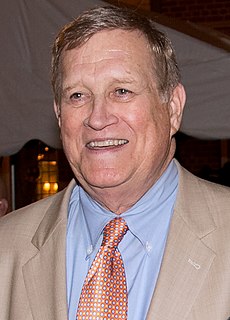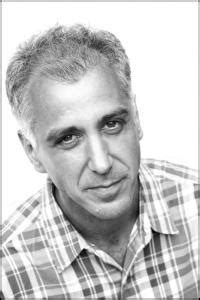A Quote by Howard Gardner
I think that every educator, indeed every human being, is concerned with what is true and what is not; what experiences to cherish and which ones to avoid; and how best to relate to other human beings. We differ in how conscious we are of these questions; how reflective we are about our own stances; whether we are aware of how these human virtues are threatened by critiques (philosophical, cultural) and by technologies (chiefly the digital media). A good educator should help us all to navigate our way in this tangled web of virtues.
Quote Topics
About
Avoid
Aware
Being
Beings
Best
Cherish
Chiefly
Concerned
Conscious
Cultural
Differ
Digital
Digital Media
Educator
Every
Experiences
Good
Help
How
Human
Human Being
Human Beings
Indeed
Media
Navigate
Other
Our
Own
Philosophical
Questions
Reflective
Relate
Should
Tangled
Technologies
Think
Threatened
True
Us
Virtues
Way
Web
Whether
Which
Related Quotes
It's easy to sell good news like this, and the authors confidently rely on classic fallacious arguments. They argue by declaration, which is what makes the books so amusing. In matter-of-fact, authoritative tones, the authors tell us how plants and human beings exchange energy - or they describe what angels look like, whether or how they're sexed, how they communicate with human beings, and how they differ from ghosts. Readers might be expected to wonder, How do they know?
To be good Christians you have to contemplate the suffering humanity of Jesus. "How can we bear witness? Contemplate Jesus. How can we forgive? Contemplate Jesus suffering. How can we not hate our neighbor? Contemplate Jesus suffering. How can we avoid gossiping about our neighbor? Contemplate Jesus suffering. There is no other way". These virtues are the those of the Father, who forgives us always, and Our Lady, Our Mother, shares in these virtues too.
What I feel I can do is help people become aware of how pervasive and extensive the arts are, how they affect each one of us in our daily lives—what kind of [buildings] we live in, what kind of clothes we wear, what we see with our eyes. We are often blind to the beautiful things around us. What I'm mostly concerned about is how often we're blind to our own talent. I think that within each human being there is a creative spirit, and some of us have been fortunate enough to have good teachers and parents who've brought this out and encouraged it, but others haven't.
If you think about work, it's just this endlessly fascinating subject. We spend at least half of our waking hours working. So it becomes this incredible window into a whole variety of things: who we are human beings, how the economy works, how people relate to each other, how stuff is made, how the world spins on its axis.
Most of our difficulties, our hopes, and our worries are empty fantasies. Nothing has ever existed except this moment. That's all there is. That's all we are. Yet most human beings spend 50 to 90 percent or more of their time in their imagination, living in fantasy. We think about what has happened to us, what might have happened, how we feel about it, how we should be different, how others should be different, how it's all a shame, and on and on; it's all fantasy, all imagination. Memory is imagination. Every memory that we stick to devastates our life.
The Dalai Lama once said that every human being has two fundamental desires: to be happy and free of pain. I'm interested both in helping people and myself achieve these and also, in the process, finding out what our full potential is as human beings. In essence, there's so much unconsciousness about how/what we eat and how we live which creates the problems that people face. I see so many sick and suffering people when I go on my lecture tours and, if I can help someone find their way back to a life worth living, that's a good day's work.
There is no limit to suffering human beings have been willing to inflict on others, no matter how innocent, no matter how young, and no matter how old. This fact must lead all reasonable human beings, that is, all human beings who take evidence seriously, to draw only one possible conclusion: Human nature is not basically good.
In reality, there is a single integral community of the Earth that includes all its component members whether human or other than human. In this community every being has its own role to fulfill, its own dignity, its own inner spontaneity. Every being has its own voice. Every being declares itself to the entire universe. Every being enters into communion with other beings.
In every phase of our imaginative, aesthetic, and emotional lives we are profoundly dependent on this larger context of the surrounding world.
If this being is omnipotent, then every occurrence, including every human action, every human thought, and every human feeling and aspiration is also His work; how is it possible to think of holding men responsible for their deeds and thoughts before such an almighty Being? In giving out punishment and rewards He would to a certain extent be passing judgment on Himself. How can this be combined with the goodness and righteousness ascribed to Him?



































